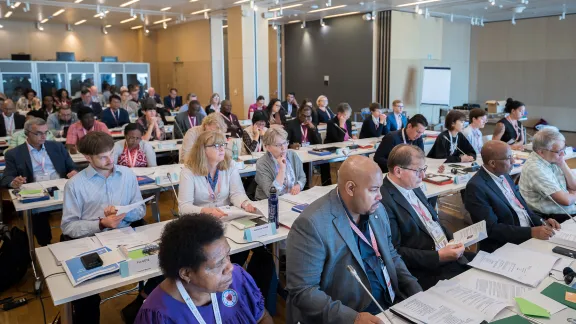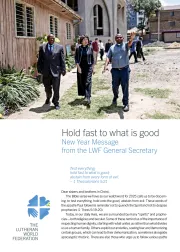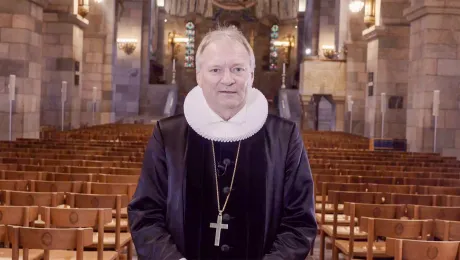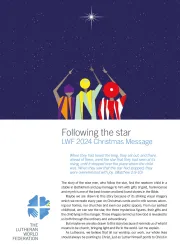
The newly LWF Council convenes for their first session following the LWF Thirteenth Assembly. Photo: LWF/Albin Hillert
Newly elected president and Council members gather in Switzerland for first full meeting since Kraków Assembly
(LWI) - “Abound in Hope” (Rom 15:13) is the theme under the spotlight next week as the Lutheran World Federation (LWF) leadership comes together for a first full Council meeting since members were elected at the landmark Thirteenth Assembly in Kraków, Poland, last September.
The 13 to 18 June meeting in Chavannes-de-Bogis, just outside Geneva, will be a moment of new horizons as the Council sets directions for several new task forces and study processes and is poised to approve a new seven-year strategy for the global communion of churches. The gathering will open with a service of Holy Communion, with a former vice president, Rev. Dr Jeannette Ada Epse Maina from Cameroon, preaching. Youth member Rev. Jussi Luoma from Finland will preside at that inaugural worship.
Newly elected President Bishop Henrik Stubkjær will inaugurate the meeting and officially welcome Council members. LWF General Secretary Rev. Dr Anne Burghardt will present an overview of the work of the Communion Office since the Assembly. During the meeting, the Council will visit and inaugurate the new Communion Office on the Octagon Campus which has housed the LWF headquarters since March this year.
New study processes on theology and peacebuilding
The Council consists of 48 members, the President and the Chairperson of the Finance Committee. Council members come from LWF member churches and were elected by the Assembly to ensure balanced representation of all regions, as well as lay and ordained, men, women and young leaders. The Council is led by the LWF President and supported by 9 advisers. It meets once a year to oversee the running of the Communion Office, including a review of financial statements, approval of the budget and overseeing implementation of decisions taken by the Assembly.
At this first meeting since the Kraków Assembly the Council will initiate two new study processes, one on the Theology of the Cross in the context of the 21st century and a second on Peace and Reconciliation in the context of conflict and war. It will also set up task forces to establish a Mutual Responsibility Framework for member churches and to develop policies on two other areas identified as priorities by Assembly participants: intergenerational justice and climate justice.
New strategy and ecumenical relations
Ecumenical dialogue will feature on the Council’s agenda, with the appointment of Lutheran members to the international dialogue commissions with Catholics and with Pentecostals. There will also be discussion of a joint statement between Lutherans and Orthodox on theological differences relating to the Nicene Creed that have divided East and Western Christians for centuries.
In another important development for the life of the worldwide communion, Council members will review the new LWF Strategy which has been developed from the resolutions taken at the Kraków Assembly. Several months of consultations with church leaders, partners and Communion Office staff have also helped to shape the new strategy, which builds on the previous strategy and the work accomplished over the last six-year period since the previous Assembly in Windhoek, Namibia.


